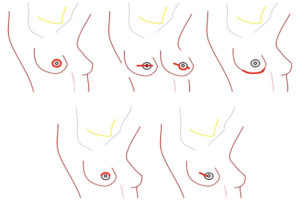Ten years ago, when I bucked four surgeons’ advice and decided NOT to reconstruct, I didn’t know a single other cis-gendered breast cancer patient my age who’d made that choice. I couldn’t help wondering “What was wrong with me?” that I craved simplicity rather than reconstruction. To feel the softness of a well-worn tee shirt against my skin? To use my back muscles to support my spine rather than to buffer an implant? To be set free from extra surgeries and screenings?
Nothing was wrong with me.
Today, I’m in the company of thousands of women who are reclaiming their bodies and their lives from cancer. Emily Hopper, 32, is a force of nature. She is a breast cancer advocate, an artist, and a mother.
“Not having breasts gives me a sense of freedom I never knew I wanted. In some ways it feels like a new level of womanhood,” Emily Hopper.
Emily is the owner-creator of EMPOWERHAUS, an online business whose mission is to embolden and inspire women, breast cancer patients, and supporters of all stripes. We met in an online community for “flatties” and became fast friends because she is wicked smart, hilarious, and ass-kicking.
Recently, we talked about living our best flat life for The Daily Beast. Take a peek and let me know what you think. And keep an eye on Emily cause this chick is going places!
